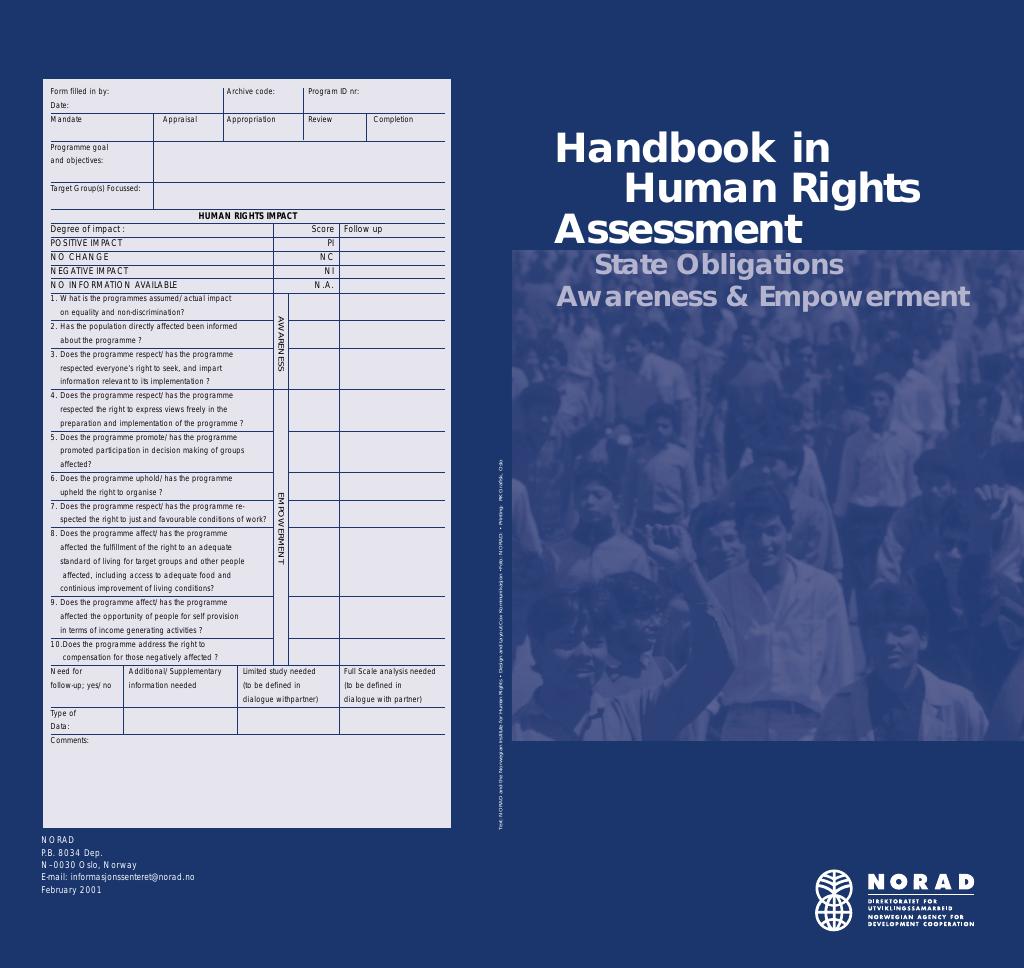Veileder
Handbook in human rights assessment : state obligations awareness & empowerment
The major goal of Norwegian development cooperationis to contribute to the improvement of economic,social, and political conditions in developing countries withparticular emphasis on poverty alleviation. Moreover, theNorwegian Parliament has singled out the promotion ofhuman rights as one among several target areas within thisfield of activity. Priority is given to enhancing the rights ofwomen, children, the disabled and indigenous people.The Government's Plan of Action on Human Rightslaunched in December 1999 states that «peace, democracyand respect for human rights are fundamental conditionsfor sustainable development. Consequently, thesecomponents must be built into development co-operationboth globally and with each partner country». NORAD'sstrategy 2000-2005 outlines that; «human rights areessential components of the development co-operationeffort and that human rights treaties shall serve as acommon denominator for the dialogue between Norwayand its partner countries.» In this way the two documentsintroduces a rights based approach to development.To implement this policy, issues related to humanrights are addressed in policy dialogue with partnercountries. Emphasis is placed on the need to consolidatelegal framework by means of reform of domesticlegislation and adherence to international human rightstreaties. Furthermore, support is provided to initiativeswhich main aim is to enhance and promote human rights, such as ombudsman institutions, independent judiciary,free media, democratic elections etc. Finally, efforts aremade to mainstream human rights into other programmeareas. The latter is the approach to be further elaborated inthis handbook.In this context mainstreaming implies that the mannerin which development co-operation is carried out pay dueregard to respecting and promoting human rights. Acornerstone in this approach is the active free andmeaningful participation of the beneficiaries as lined out inthe UN Declaration on the Right to Development of 1986.So far, we have gained only little operational experiencewith this approach. The handbook therefore aims atproviding the user with a practical tool for enhancing thehuman rights profile of development programmes.NORAD's Technical Department would welcome anycomment, advise or suggestion which could contribute atimproving the modality in future editions.
